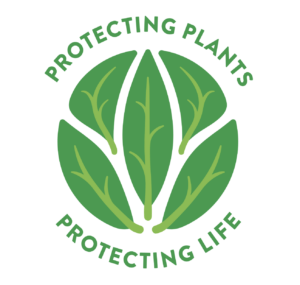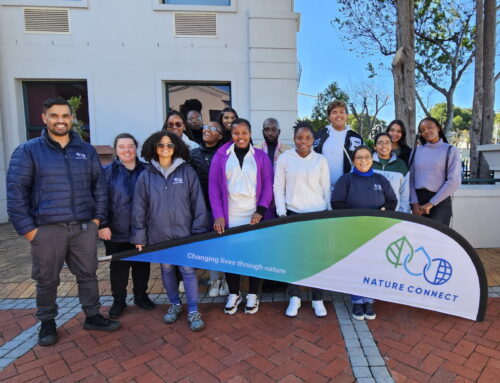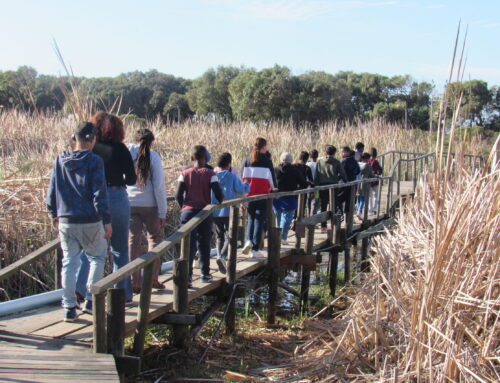Written by Meagan Eddy
Throughout the year, inter-generational learners from our Nature Care Fund’s small grantee, Community Women Action, have been learning about fynbos species and their medicinal values. While we learn how plants can keep us healthy, the International Day of Plant Health (IDPH) is about learning how to keep our plants healthy.
Plants are life! Plants produce 25% of the world’s medicine, 80% of the food we eat and 98% of the oxygen we breathe. While also contributing to our clothes, shelter, braai wood, coffee, chocolate and many more items that are sitting around us right now.
Every year, up to 40% of food crops are lost to pests and diseases around the world. This affects food security, biodiversity and the world’s largest employment industry, agriculture. The agriculture industry employs up to 40% of the world’s population, and every year approximately USD 220 billion is lost to damages from invasive pest species.
International travel and trade have largely been associated with the introduction and spread of plant pests. With over 240 million containers (carrying plant products) moving between countries, and about 80% of international shipments utilising wood packaging material; there are plenty of pathways available for pest transmission, posing biosecurity risks across the globe. Climate change further aggravates the situation, as new temperature niches are causing more plant pests and diseases to appear earlier and in places they have never been seen before.
A current example as to the impact of an invasive pest is the spread of the Polyphagous Shot Hole Borer Beetle (Euwallacea fornicates), which has been the direct cause for thousands of trees to be destroyed from Cape Town’s suburban streets and in fruit farm orchards.
First used in ancient Mesopotamia, pesticides are not a simple answer ensuring plant health, due to the inherent risks. While the number of pests would be reduced, the use of pesticides also harms pollinators, indigenous pests’ natural enemies, and other organisms crucial for healthy soil and ecosystems. These knock-on effects also reduce crop yields and their nutritious value.
The concept of plant health and plant health issues was first brought to the world’s attention by the United Nations Food and Agriculture Organisation (UNFOA). The UN called for further investigation and innovation, leading to 2020 and 2021 being declared the International Years of Plant Health. Amid the COVID pandemic of 2020, London hosted the very first ever International Plant Health Conference.
In March 2022, the National General Assembly unanimously declared May 12 as the International Day of Plant Health (IDPH) to highlight plant health issues on a global scale. This day aims to encourage communities to tackle plant health matters as a way to help end hunger, reduce poverty, protect biodiversity and boost economic development.
The UN’s Get Involved Guide has ideas and suggestions for everyone to pitch in, whether you work in:
- Government and can influence policy (such as International Standards for Phytosanitary Measures);
- Business and can facilitate plant product purchases and transport;
- Farming and can ensure the use of pest-free seeds and environmentally friendly pest management practices;
- Media and can help spread the word;
- A position of education whereby you can educate others on the importance of plant health.

If you have your own food garden, tend to your plants with care and do research on various options when it comes to maintaining their health. As a consumer, look for pesticide-free produce in stores, and purchase from reputable companies that provide international phytosanitary certification for safe trade of plants and plant products.
Plants are life! Let’s use this environmental day to better appreciate our plants and to live our most healthy lives and help them live theirs.






